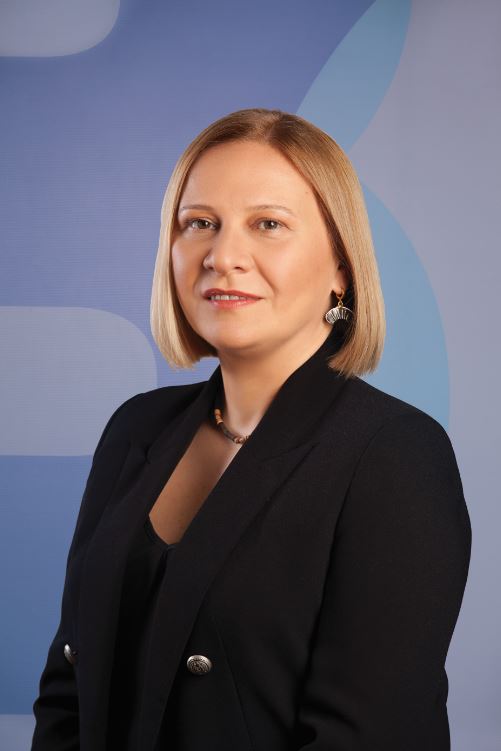Ambassador of SDG 17 – Partnerships for the Goals
Former Senior Private Sector Engagement (PSE) Advisor at USAID Georgia, Beverly Hoover

How we can foster partnerships for sustainable development? Who is involved in this and how can we achieve Agenda 2030 through partnerships?
SDG 17 is really about the means by which the goals are implemented, and we are committed highly to working with the Georgian government, Georgian civil society and the private sector for sustainable development. We do this globally, as well as here in Georgia, and we are very proud of the approach that we have taken in the last few years, sort of reinforcing our commitment to this approach. Partnership is at the heart of our cooperation, our country development cooperation strategy. And that means that, across sectors, and in every area and every program, USAID is committed to working through the partnership approach. In particular, we’ve renewed our efforts and collaboration with the private sector in recent years and are seeing some really good results. We’ve just done a year-end round-up and realized that, through these partnerships, we’ve catalyzed more than $20 million in private sector contributions to Georgia’s development goals. We’ve created over 4000 – 4700 jobs. We’ve facilitated $45 million in new investment to targeted sectors. So, we’re seeing that we are accomplishing greater and more lasting results by working in partnership with the private sector, the government, and civil society. And we believe that is true to the sustainable development goal agenda. I think it creates a demonstration effect across sectors to show that it’s a model for working in that way.
It’s very important to facilitate Public-Private Dialogue in the country and also include the business sector in the implementation of Agenda 2030. USAID is working very actively in that direction. Can you tell us more about that? How do you facilitate and support the Public- Private Dialogue in Georgia, and how do you work with businesses?
Yes, that’s been a prime focus of our programs across the board, both on the democracy governance side and on the economic growth side, because really sustainable development is about those two sectors coming together for end results. We’ve been really impressed with the growth of the private sector in the last few years. They’re engaging in a way that we believe they hadn’t in the past. And one of the good examples of this is under our Industry-Led Skills Development Program. We have convened a business leader’s council, and this is a voluntary thing from some of the top CEOs in the country and leading business associations coming together and actually providing their time and effort to steer our programming to make sure that the program, that is focused on upskilling, is targeting the gaps in the market and making a lasting impact. This is going above and beyond their specific business interests. A lot of them are local private sector entities that have grown to the level that they see the need, and they see the value of giving back in a larger way to the sector and to the country in its development. This is a really promising development. As you know, you’re a partner with us on the economic governance side in which we were facilitating Public-Private Dialogue in a number of key areas, such as e-commerce, capital market formation, and in the investment law that’s now being implemented. All of these things – this legislation and its implementation – really benefited from that dialogue that was facilitated in its formation. As you know, with the EU accession and the hard work that Georgia needs to do, it is even more critical that no sector can work alone. We have to really raise the bar in our efforts to bring these sectors together for reforms and for progress.
How can businesses and civil society work together, why is it important, and how do you facilitate this partnership?
For any country to really achieve its sustainable development goals, we need to have a civil society in all its forms and the private sector in all its forms, really engaging and engendering a trust that will build relationships and allow the partnerships to prosper. One specific example that I’d like to point to, that we’re seeing a good amount of progress in, is the partnership under our civic education program. It’s working in 650 schools across the country, and it’s basically incentivizing local businesses to come together with local school administrations, community-based associations, which are civil society, and to look at what we could do together to improve communities and to generate jobs, to improve education outcomes and really, very importantly, empower youth to be leading this. This is a new approach for us, and we’re seeing a lot of interest on both the business side and on the civil society side. And we’re excited to see what that will result in over the next few years. But I think that we’re on a very good path.
Can we talk more about your programs? You mentioned the civic education program, also the economic governance program. How do you support sustainable development in Georgia through other programs as well and, of course, the partnership facilitation for Agenda 2030?
As we’ve said, this sustainable development goal is really about the means. So, it’s sort of a cross-cutting thing in all of our programming. But some other areas in programs that I’d like to highlight are really in the renewable energy sector. I believe that this is probably the most important, one of the most important sectors to focus partnerships on in the coming year. The government’s made some great commitments recently about developing its renewable energy assets and resources, and USAID is working with the government to launch, be prepared to launch, a competitive power market. And we’re also working with the private sector and the government to create incentives for the private sector to invest in the development of those renewable energy projects. This will lead to generating greater electricity and energy resources for Georgia, but also fight climate change and increase Georgia’s energy security and independence in the future. That’s a very strategic thing, a very important, timely sector, and our partnership, working across the private and public sectors in this coming year, will be critical.
What would you recommend to the business sector? How can we achieve Agenda 2030?
In essence, we need to keep up with what we are doing. I feel like we are making very good progress, and we have a lot of models and a lot of good experience working across sectors. More businesses, as we can see in the UN Global Compact Network Business Awards, more businesses are coming forward to initiate partnerships with civil society for the sake of the SDGs. This is great to see. We need to keep that up, and we also need to support them to grow in sophistication and scale so that we can make greater impacts on sustainable development. I really think that you need to go about partnerships across the board at all levels, but also make sure that you prioritize and pursue partnerships in strategic sectors and really make a commitment on both sides. And this means increased engagement across the board and making sure that what you’re doing is aligning with each other’s respective strategies. I think that will really accelerate this approach and the attainment of SDG 17. And to the business sector in particular, we want them to remain the strong partners that they are to the US and USAID. They have been amazing in stepping up in the last few years. We are looking forward to continuing that partnership. I would say that the greater commitment comes about in corporate social responsibility, and they’re investing in ESG, investing in all of that, that is going to bring them in closer alignment with the SDGs and with our shared goals. And so, to the extent that they can make even greater commitments this year, which is needed for Georgia to stay on that Euro-Atlantic integration path, it would be welcome, and we are ready to work with them. We look forward to continuing our partnerships with the government, civil society and the private sector.




 Search
Search





